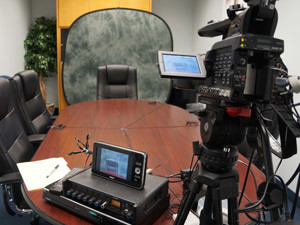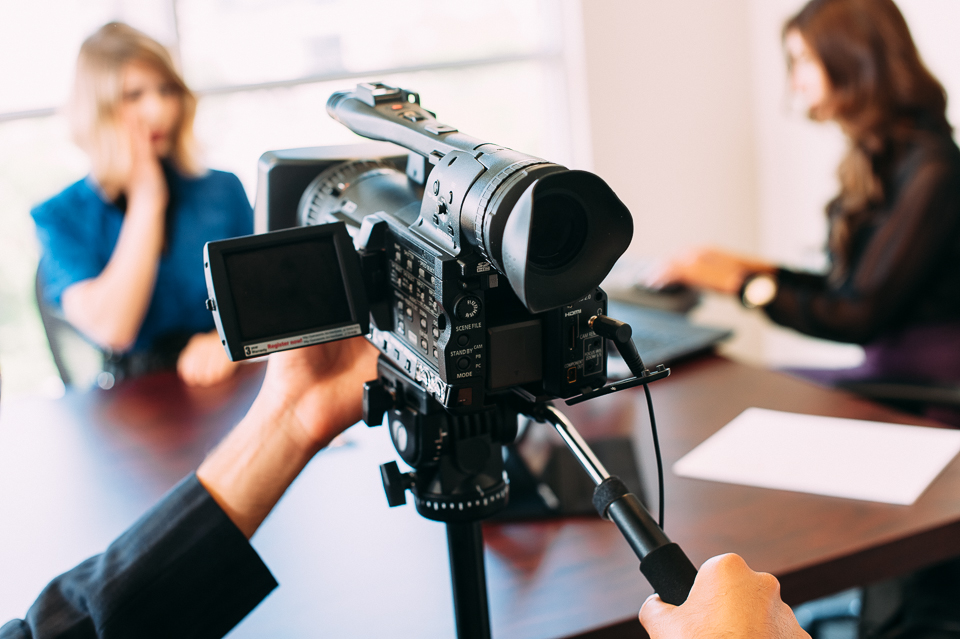Legal Videography: A Key Element in Building Strong Legal Cases
Wiki Article
The Significance of Lawful Videography in Modern Legal Procedures
In modern lawful settings, the assimilation of legal videography has become significantly considerable, working as an essential tool in the documents and presentation of proof. This practice not only guarantees a specific aesthetic account of statements yet also catches crucial non-verbal signs that may influence juror perceptions. As the legal landscape develops with technological developments, the effects of premium videography extend beyond plain documents, increasing crucial concerns about its effect on judicial outcomes and the general stability of the legal procedure. What remains to be checked out is just how these advancements could shape future lawful techniques.Meaning of Legal Videography
Lawful videography refers to the specialized practice of recording sound and visual material for use in lawful setups. This method encompasses different kinds of recordings, consisting of depositions, witness declarations, and trial discussions, which serve to record key facets of legal procedures. The primary goal is to develop an exact and trustworthy visual document that can be made use of in court or for pre-trial prep work.
Lawful videographers are trained professionals that use advanced recording equipment and strategies to make sure top quality video and audio capture. They are skilled in the lawful standards and demands controling the admissibility of video evidence, making their proficiency vital in the lawful process.

Benefits in Legal Process
The consolidation of legal videography right into contemporary legal process uses numerous benefits that improve both the efficiency and performance of the judicial process. One main benefit is the precise and long-term documentation of court room process, which can be vital for charms and record-keeping. Unlike traditional transcription approaches, video captures non-verbal signs and the general context of testimonies, providing a richer, extra nuanced account of occasions.Additionally, lawful videography can improve the discussion of evidence (legal videography). By visually demonstrating elements of a case, such as crash repairs or professional analyses, attorneys can communicate complex info better, making it much easier for discretionary to comprehend critical factors. This can bring about more informed decision-making and results
In addition, legal videography advertises ease of access. Videotaped depositions can be evaluated from another location, permitting legal teams to prepare even more extensively without the constraints of geographical limitations. This comfort help in case preparation and method growth.
Lastly, the professional high quality of videography offers reliability to the procedures, strengthening the seriousness and relevance of the lawful process. legal videography. In recap, lawful videography dramatically contributes to a much more transparent, effective, and impactful judicial system


Enhancing Witness Testimonies
Witness statements play a critical duty in legal proceedings, and making use of videography dramatically enhances their impact and effectiveness. By recording the nuances of a witness's attitude, tone, and body language, lawful videography supplies an extensive understanding of the testimony that created transcripts alone can not share. This graph aids in maintaining the witness's initial statements, making certain that jurors and legal specialists can view the testimony in its designated kind.Furthermore, videography permits a more interesting presentation of evidence, as jurors are typically more receptive to audio-visual materials contrasted to conventional paperwork. The ability to observe a witness's mood enhances the authenticity of their statements, consequently boosting the influential power of their statement. In addition, video recordings can be used for training and preparation, permitting attorneys and witnesses to assess and improve their presentations.
In instances where witnesses may be unavailable for trial, videography makes certain that their statements can still be offered, protecting the stability of their accounts. Overall, the combination of videography in lawful process substantially enhances the high quality and integrity of witness testaments, fostering a much more enlightened and fair judicial procedure.
Influence On Jury Comprehending
Catching witness testaments on video not only boosts their delivery but also significantly influences jury understanding of the instance. The visual and auditory elements of video recordings supply jurors with a more immersive experience, permitting them to perceive nuances in tone, body language, and emotional expressions that may be lost in written transcripts. This multi-sensory engagement fosters a deeper connection with the testimony, aiding jurors in understanding the complexities of the case.Furthermore, legal videography can help clarify elaborate details and guarantee that essential points exist in a coherent fashion. Jurors usually value the possibility to review important statements throughout deliberations, reinforcing their comprehension of the proof. The capacity to observe a witness's demeanor can also influence their credibility analysis, as jurors might form judgments based upon aesthetic hints that resonate with their understandings of truthfulness and integrity.
In addition, using video clip can streamline the presentation of proof, making it extra easily accessible and remarkable for jurors. On the whole, the calculated execution of lawful videography plays a crucial role in improving jury understanding, eventually adding to a fairer and a lot more enlightened lawful process.
Future Trends in Legal Videography
visit the site Increasingly, lawful professionals are identifying the transformative potential of emerging modern technologies in legal videography. As the lawful landscape evolves, the combination of artificial intelligence (AI) and equipment learning is established to transform the means Get the facts video evidence is recorded, refined, and provided. AI formulas can examine vast amounts of video footage to determine appropriate sections, boosting efficiency and making certain that vital info is not neglected.In addition, advancements in virtual reality (VIRTUAL REALITY) and enhanced truth (AR) are poised to provide immersive experiences in courtrooms. These innovations make it possible for jurors to envision criminal offense scenes or comprehend complicated circumstances in an extra interesting fashion, possibly boosting their comprehension and retention of proof.
The increase of cloud-based options likewise facilitates the secure storage and sharing of video clip evidence, enabling seamless partnership among lawful teams. legal videography. As remote hearings end up being a lot more widespread, high-grade lawful videography will certainly play an important function in guaranteeing that remote go to this website testimonies are captured accurately and offered properly
Final Thought
To conclude, lawful videography works as an important tool in contemporary lawful process, enhancing the precision and clarity of proof discussion. By capturing witness testaments in a visual style, it facilitates a much deeper understanding for jurors and maintains vital declarations for future reference. As innovation continues to evolve, the combination of top notch videography is expected to increase, further strengthening its function in promoting the stability and effectiveness of the lawful process.Report this wiki page